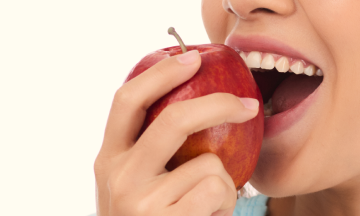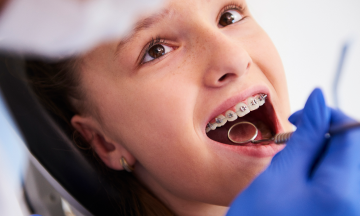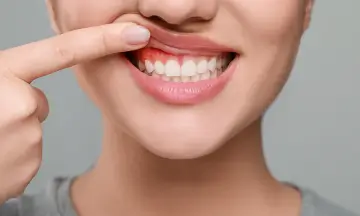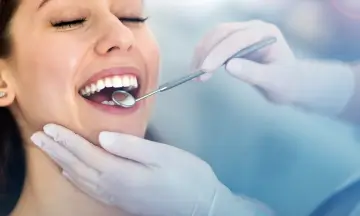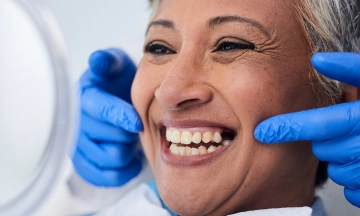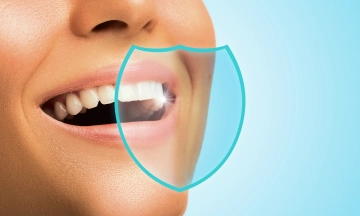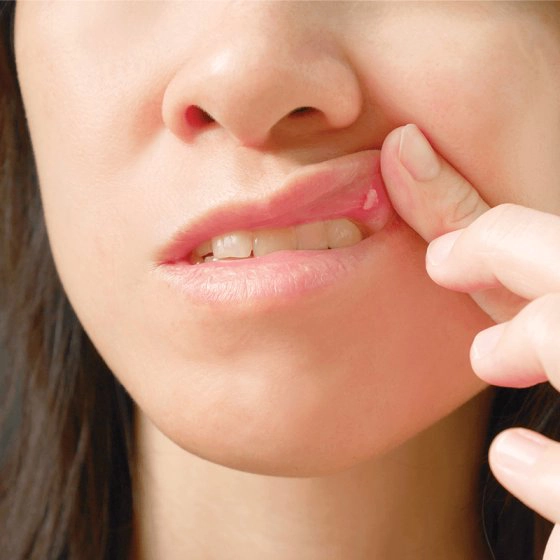
Aphthous Ulcers (also known as aphthous stomatitis, canker sores), are a common and painful problem and can make eating and talking difficult. . An aphthous ulcer is an ulcer that forms on the mucous membranes (on the soft tissues in your mouth or at the base of your gums) -- like on the inside of the lips and cheeks or below the tongue.
Aphthous Ulcers are benign in nature, non-contagious and can occur as single ulcers or in clusters.
Recurrent aphthous ulcers do not create much of a concern and go away on their own in a week or two, but at times, they could be associated with significant health problems. Aphthous ulcers that occur in conjunction with symptoms of genital ulcerations, uveitis, arthritis, conjunctivitis, fever should be brought to your doctor’s attention at the earliest as this will prompt a search for any cause or origin of this condition.
What causes an Aphthous ulcer?
The exact reason why aphthous ulcer develops is not yet known. What most researchers and practitioners think is that the immune system is disturbed by some external factor and reacts abnormally against a protein in mucosal tissue which causes Aphthous ulcer.
Possible triggers for developing Aphthous ulcer:
Aphthous ulcers are of three types: minor aphthous, major aphthous and herpetiform aphthous. However, each of this type has different symptoms.
Symptoms and types of an aphthous ulcer
Minor aphthous ulcers
These are the most common ones. They are mostly small in size, less than 5 mm in diameter and can form as a single aphthous ulcer or in a cluster. These typically do not cause much pain.
Symptoms:
Major aphthous ulcers
These are 5 mm or larger and occur in pairs or as a single ulcer. They are not very common. These are quite painful while eating or drinking.
Symptoms:
Herpetiform ulcers
Since these ulcers look like herpes in appearance, they have derived the name Herpetiform., but they are not caused by the herpes simplex virus. Herpetiform ulcers occur when several lesions fuse and form large ulcers that are irregularly shaped.
Symptoms:
Aphthous ulcers treatment
There is no cure for aphthous ulcers, but one can lessen pain and discomfort and promote healing. In most cases, the ulcers will disappear without treatment. If the ulcer needs your doctor’s attention, treatment will be based on the severity of the ulceration, the affected person’s general health and the location.
Topical anti-inflammatory pastes which can be purchased over-the-counter can be applied directly to the area where the ulcer has erupted. This type of treatment is more applicable and result oriented in the minor variety. The pastes should be applied around two and four times per day, make sure to follow the exact recommendations given by the pharmacist or your doctor.
Antiseptic mouthwash containing chlorhexidine can be part of the treatment. This can be used twice per day or as per the doctor’s recommendations
Also, in some cases, the doctor may prescribe topical or oral antibiotics, such as minocycline or tetracycline, which have been effective in treating ulcers. They are mostly administered in mouthwash form, where the antibiotic has to be dissolved in water, gargled and spat out. This must be done at least 2-3 times a day for several days or until you see the result.
This antibiotic mouthwash, containing tetracycline, cannot be administered to children below the age of 8. If need be, make sure to get your doctor’s recommendation, as using this can discolour their teeth.
Other treatments for aphthous ulcers
When the ulcers are unresponsive to the above treatments, other treatments need to be administered which may include oral steroids, local anaesthetics benzocaine and lignocaine (lidocaine) to reduce pain or other local numbing agents; and nutritional supplements (containing folate, zinc or vitamin B-12) and topical medication such as calcineurin inhibitors: pimecrolimus or tacrolimus.
Besides all the above, there are several home remedies you may try if the ulcer is not major:
Home remedies for aphthous ulcers
Prevention
As mentioned earlier, Aphthous ulcers can often recur, but you can reduce the frequency of reoccurrence by following these tips:
Most aphthous ulcers will go away on their own in a week or two. But do not neglect a doctor’s visit if you notice severe symptoms. Sores that don't seem to heal could possibly detect an underlying condition. Talk to our mouth ulcer specialist in Bangalore to understand and know more about your oral health condition and the correct treatment.
Sakra World Hospital is the best dental hospital in Bangalore having the best dentist in Bangalore experienced in treating any kind of dental conditions. Book an appointment now!







